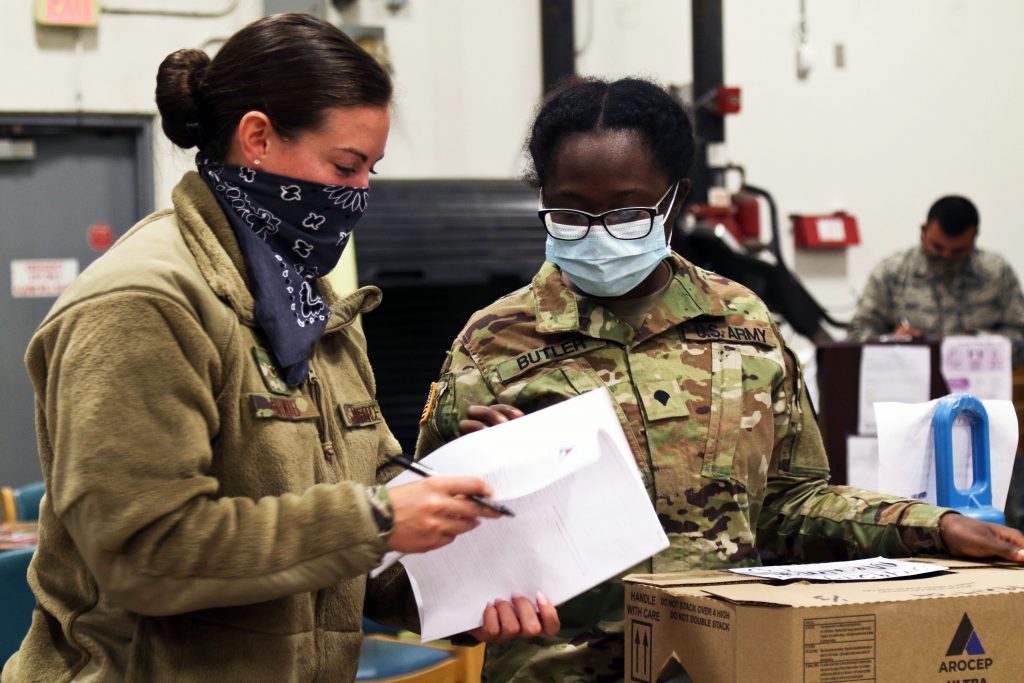What You Should Know Before Filing for Bankruptcy as a Military Member

If you’re a service member or military veteran considering bankruptcy, you’re not alone. According to the National Bankruptcy Forum, more than 750,000 Americans file for bankruptcy each year, as do 1 in 10 active-duty personnel.
There are pros and cons to filing when you’re in the military. While you enjoy certain advantages over filing as a civilian, an improperly handled bankruptcy may have an impact on your security clearance.
Read the following facts to help get informed before you file. Ready to learn more? NFCC-certified counselors are available and ready to assist you with your bankruptcy questions.
Bankruptcy exists for a reason.
The first and most important thing to know is that bankruptcy was designed as a solution — a way to do something about debt that has become unmanageable. While bankruptcy does lower your credit score (by up to 240 points) and stays on your credit report for up to 10 years, filing is better than digging a larger financial hole or, worse.
Bankruptcy proceedings can be stopped when you’re activated.
The Servicemembers Civil Relief Act (SCRA) lets courts postpone or “stay” legal proceedings — including bankruptcy — for active-duty service members for up to 90 days after they return home.
Chapter 7 is a simpler, faster version of Chapter 13.
The chapter you choose to file under depends on how much debt you have, your income, and your timeline for repayment. Chapter 7 is the most popular option, partly because you can turn over property and assets rather than pay back debt out of pocket. Chapter 13 is usually for debtors with higher incomes. It involves reorganizing your finances over three to five years and can include taking money out of your paycheck — called “wage garnishing.”
Your reason for filing is what matters most to a security clearance.
The military wants to ensure that all personnel with a security clearance are “financially responsible.” If investigators see that your bankruptcy resulted from a one-time hardship (e.g., divorce), then your security clearance is unlikely to be affected. In contrast, if your bankruptcy is linked to a criminal conviction (e.g., a DUI) or a history of irresponsible behavior (e.g., gambling), then your clearance may be at risk. Nonetheless, serious debt may be a greater liability to your security clearance than bankruptcy, because you’re seen as more susceptible to bribery or other criminal activity as a way to get out of debt.
Some service-disabled veterans can file without proving their income.
Normally, you have to pass a “means test” before filing for bankruptcy. This test checks that you either make less than the median income in your home-of-record state or that your debt exceeds your disposable monthly income. If you’re a veteran with a disability rating of 30 percent or higher and have debt incurred during military service, then you can skip this test. Special exceptions apply for the National Guard and Reserve. Contact an NFCC-certified counselor for more details.
Resources are available to help you avoid bankruptcy — and to support you through it.
The Defense Finance and Accounting Service has an online portal where military members can ask questions about debt management. The American Bar Association sometimes offers free legal services to military cases. Military families and veterans also have several interest-free loan options and grant programs, such as Army Emergency Relief, Operation Homefront, and USA Cares.
Credit counseling is required before you can file (unless you’re in a combat zone).
This step is the law’s way of looking out for you: ensuring that your debt can’t be handled in other ways that are less damaging to your credit. NFCC’s member agencies are committed to providing accredited, trustworthy advisory services to military families and veterans. Contact us today to find a nonprofit member agency near you.



